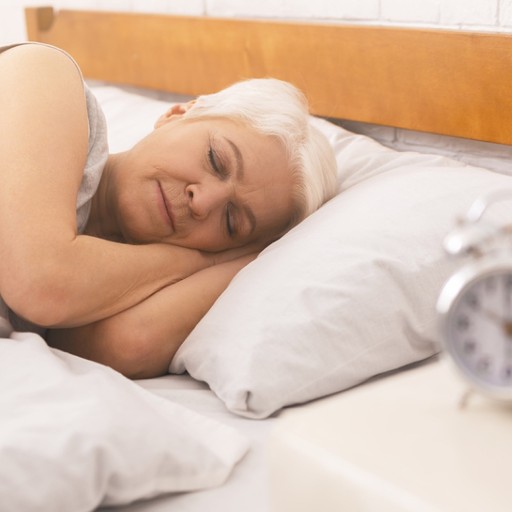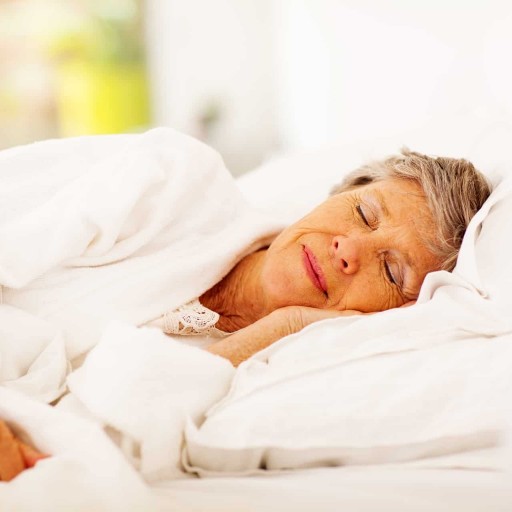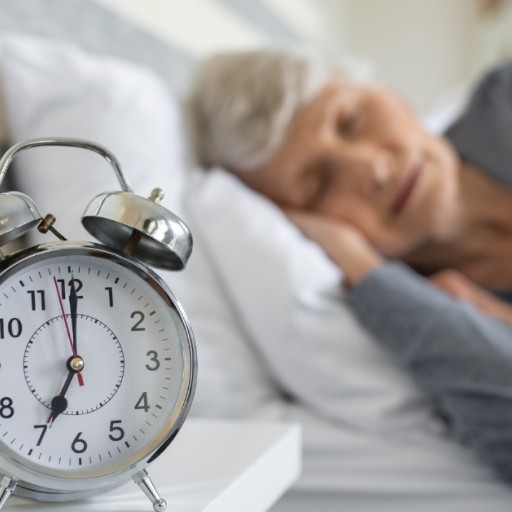Advertisement
In the Golden Years, sleep is more than simply rest; it becomes the key to health and well-being. According to the National Sleep Foundation, a good night's sleep has a profound effect on cognitive function, emotional stability, and overall health in older adults.
However, as they age, many older adults find themselves facing sleep disorders that not only affect their quality of life, but may also exacerbate other health problems.
As we age, physiological changes, psychological factors and lifestyle habits all affect the quality of sleep of the elderly. The following are the main causes of common sleep problems in the elderly:
The sleep structure of the elderly undergoes significant changes. As we age, the deep sleep stages (also known as slow-wave sleep) decrease and the duration of rapid eye movement (REM) sleep shortens, which leads to a decrease in sleep quality.
In addition, melatonin production decreases, making it more difficult for older adults to fall asleep and maintain sleep.
Many older adults suffer from chronic diseases such as high blood pressure, heart disease, diabetes, and arthritis, which can lead to nighttime discomfort and disrupted sleep. In addition, many older adults need to take medications for long periods of time, and the side effects of some medications can interfere with normal sleep patterns.
Mental health issues such as anxiety, depression, and loneliness can also significantly affect sleep quality. Studies have shown that older adults often experience psychological stress when they lose a spouse, retire, or face changes in their life roles, which can interfere with restful sleep at night.
Irregular routines, lack of activity during the day, and over-reliance on caffeine or alcohol can all negatively affect sleep. In addition, many older adults are accustomed to taking naps during the day, which can also lead to difficulty sleeping at night.

According to the National Sleep Foundation, most older Americans report experiencing sleep problems at some point. Common sleep disorders include the following:
Insomnia is one of the most common sleep disorders among older adults and is characterized by difficulty falling asleep, frequent awakenings during the night, and early awakenings. Approximately 30-50% of older Americans report experiencing chronic insomnia, which significantly reduces their quality of life.
Sleep apnea is a common breathing-related sleep disorder that older adults are more likely to suffer from. It is characterized by pauses in breathing and snoring during sleep, and in severe cases can lead to complications such as heart disease and high blood pressure.
The prevalence of sleep apnea in the elderly population in the United States is on the rise with age.
Restless Legs SyndromeThis syndrome is characterized by discomfort, numbness or pain in the legs at night, causing the patient to constantly move the legs to relieve the discomfort.
This symptom makes it difficult for the elderly to maintain a restful sleep for a long period of time and seriously affects the quality of sleep.
Periodic Limb Movement Disorder (PLMD) is a movement disorder that occurs during sleep and is characterized by periodic twitching of the legs and arms, affecting the continuity of sleep. Periodic limb movement disorder is more common in the elderly, causing patients to wake up frequently at night.
Advertisement

The sleep quality of the elderly can be improved in a number of ways, including adjusting living habits, improving the sleep environment and treating underlying diseases. The following are some specific suggestions:
Establish a regular routine: A regular routine helps keep the body's biological clock stable and helps older people fall asleep more easily.
It is recommended to wake up and go to bed at the same time every day, and try to maintain this routine even on weekends. In addition, lunch breaks should be properly controlled to avoid interfering with nighttime sleep.
Create a comfortable sleep environment: Providing a quiet, comfortable sleep environment is essential to improving sleep quality.
Bedrooms for the elderly should be kept dark, quiet and cool. The use of blackout curtains, earplugs or white noise devices can help minimize external disturbances. In addition, choosing a comfortable mattress and pillow can help ease discomfort and improve the sleep experience.
Avoid bedtime stimuli: Stimulating foods or beverages, such as coffee, tea and sugary foods, should be avoided before bed. It is also important to reduce the amount of time spent using electronic devices before bedtime; blue light can inhibit melatonin production and interfere with falling asleep.
It is recommended to avoid using electronic devices within an hour before bedtime. You can choose relaxing activities such as reading, listening to soft music or meditation to promote sleep.
Increase daytime activity: Older adults often feel over-energized due to lack of activity, which can interfere with falling asleep at night. Therefore, increasing physical activity during the day can help improve sleep quality.
The Centers for Disease Control and Prevention (CDC) recommends that older adults engage in at least 30 minutes of moderate-intensity aerobic exercise, such as walking, biking, or swimming, every day. Moderate exercise not only helps burn off excess energy, but also improves physical and mental health and sleep quality.

Use natural light to regulate the biological clock: Exposure to natural light during the day helps regulate the body's biological clock, promoting wakefulness during the day and sleepiness at night.
It is recommended that older adults try to get as much sunlight as possible during the day, especially during the morning hours, which helps the body produce enough melatonin to regulate sleep.
Treat underlying health issues: Many older adults have sleep problems stemming from underlying health issues such as arthritis, chronic pain or depression. Therefore, prompt treatment of these health problems is key to improving sleep quality.
If medication side effects are affecting sleep, it is recommended to talk to your doctor about adjusting your medication or the duration of your medication.
Seek professional help: For chronic insomnia or other serious sleep problems, seniors are advised to seek professional medical help. Sleep specialists can help patients with sleep problems through sleep assessment, behavioral therapy or medication intervention.
In addition, psychological counseling can help relieve anxiety, depression and other psychological disorders, thus improving sleep.
Through continuous health interventions and social support, older people can find more comfort and peace in their lives, thus achieving a sense of physical and mental balance and well-being. This is not only what every older person deserves, but also a better future for them created by society as a whole.
Advertisement





